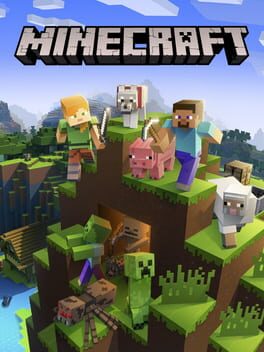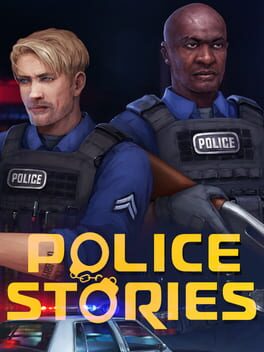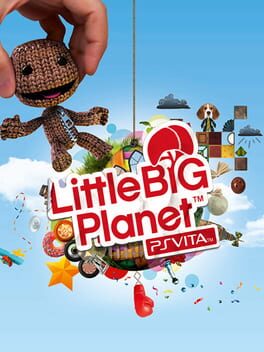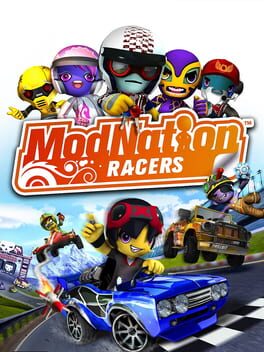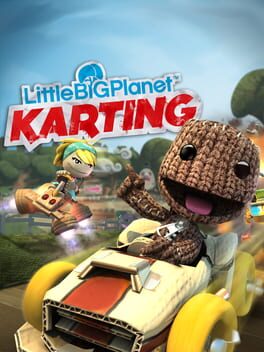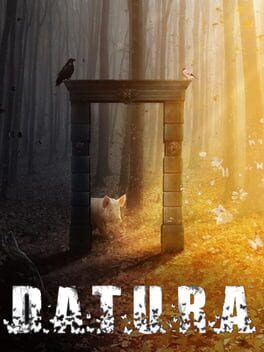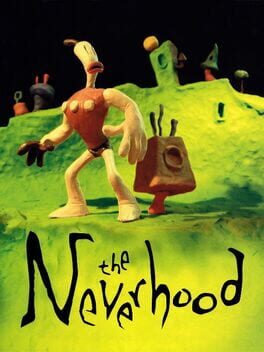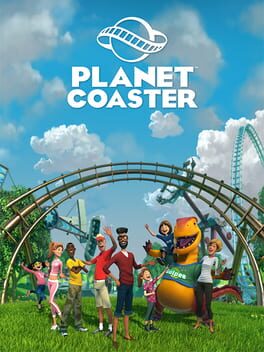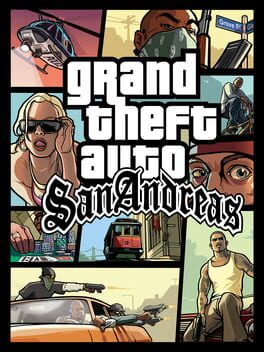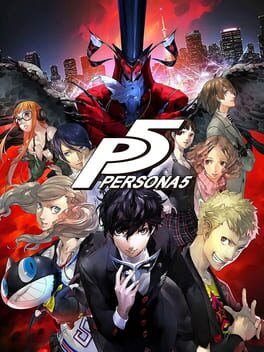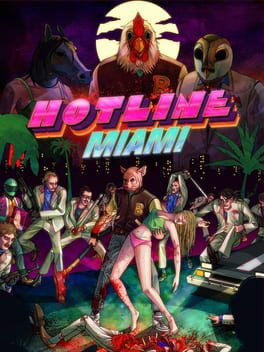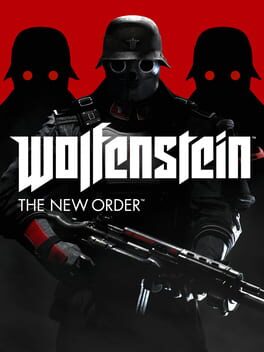Yultimona
2011
I have a lot of nostalgia for Minecraft because I grew up playing a pirated version of its Alpha version that somebody handed my older brother in middle school. Many of my best memories from that time come from messing around with tools, like the time my brother used a cheat tool to spawn in ice blocks and TNT to create a tsunami and then used that TNT on my savefile to dig me so far inside of a mountain that I had to create a new savefile.
I have respect for the game as it is.
But I just gotta level with you, man; Minecraft has never clicked with me. I can't put my finger on it, but games like this always begin and end with me returning to them every few months and then abandoning them out of boredom. When I try to play with people who don't get bored immediately, I'm outclassed by people who have been playing this for years, so it becomes a pretty boorish showcase of feeling like I'm behind the times.
Again, again, again: I get that it's a good game. But it's just not for me.
I have respect for the game as it is.
But I just gotta level with you, man; Minecraft has never clicked with me. I can't put my finger on it, but games like this always begin and end with me returning to them every few months and then abandoning them out of boredom. When I try to play with people who don't get bored immediately, I'm outclassed by people who have been playing this for years, so it becomes a pretty boorish showcase of feeling like I'm behind the times.
Again, again, again: I get that it's a good game. But it's just not for me.
2015
Undeadz! is carried by its excellent depiction of desolation and not much else. It's a game that makes you ask many questions but never answers them and never gives you a good reason to think of answers for yourself. It's both underdesigned and overdesigned; the game's goal is literally just "kill all of the zombies," but there's a surprising number of mechanics that you'll probably never need to use. It all technically works, but it's rudimentary and expects you to create all of the fun for yourself. I'll give it props for being a small-scale sandbox in an era where those are a dying breed, but even the best games of that type try to curate their content a little bit. Undeadz! is, sadly, a game that gets boring quickly because it's too stubborn to try any of that. And when you're not trying to keep yourself awake, you're fighting with the controls. You use W and S to move back and forth, but A and D are never used, and you use the mouse to turn. This works pretty smoothly, but you'll occasionally hit A and D. Where things really start to shit the bed is combat. In Undeadz!, your guns and melee weapons are bound to different buttons. When you want to whack someone with a crowbar, do that with the right mouse button. When you want to shoot your gun, you click the middle mouse button. It's hard to describe, but it feels so clunky and unintuitive that it makes the already barebones combat a snooze.
I really want to give this the benefit of the doubt and say that there's something beside the art style that's good, but I got so bored playing this that I honestly can't recommend it.
(Fun fact: if you hit the Enter key while playing this game, your character starts to swim indefinitely. I'm pretty sure that this is a hold-over from when the game was being tested because trying to walk in water plays the same animation. It's baffling that it's in the game, and what makes it doubly baffling is that you can only exit it by quitting the game or reloading a save file)
I really want to give this the benefit of the doubt and say that there's something beside the art style that's good, but I got so bored playing this that I honestly can't recommend it.
(Fun fact: if you hit the Enter key while playing this game, your character starts to swim indefinitely. I'm pretty sure that this is a hold-over from when the game was being tested because trying to walk in water plays the same animation. It's baffling that it's in the game, and what makes it doubly baffling is that you can only exit it by quitting the game or reloading a save file)
2019
Absolutely play Police Stories with a friend. The only reason I'm giving it three-and-a-half stars and not two is that I beat this with my brother, and we both had a blast. Occasionally, the game feels broken; sometimes, a hostage situation is spawned at the beginning of a level with doors that automatically open when you approach them. Since you can't see a hostage situation happening until you're close to one, this essentially means that the hostage dies every time. On your own, pretty frustrating. With a friend or family member? Fucking hilarious. But when the game isn't being broken, there's a neat layer of tactical gameplay that makes it feel like a buddy-cop game in the best way possible. You'll be trying to communicate when you split off from your partner, when you follow them or support them, or when you have to take a shot. Due to the scoring system, which punishes reckless behavior, good communication is a must. Although you can easily restart a level at the press of a button, it's never nearly as satisfying as taking on a deadly compound without ever needing a fire a bullet.
But if you're playing this by yourself, it's okay? I have to give the developers props for trying. It's exceptionally difficult to make a companion AI feel like a person. It only becomes more complicated when the game you're making necessitates that the two people playing it are constantly talking to each other. Given this hurdle, the effort to try and emulate the multiplayer experience with AI is respectable. But sadly, it never overcomes the feeling of being a lesser game on your own. Besides that, certain aspects of the AI feel a bit unbalanced, to the point where you can pretty easily cheese the game. There's a tool in here that makes it so you can see through doors. If you're playing multiplayer, this takes some time, as you have to scroll the tool across the room slowly. If your AI partner does it? You see where the enemies are instantly. The only challenges are that you can't always see if an enemy happens to be hiding behind a box and that you can't spam the ability because the AI gets bugged and stops following you if you bark too many orders at it. Essentially, having that tool on your AI partner means you get free wallhacks 90% of the time, which almost entirely defeats the purpose of having a narrow view cone. The doorscope is one of the only useful tools to rely on the AI for, as everything else feels a bit janky. Want to have your partner throw a flashbang into a room and then quickly close the door before it blinds you? He'll throw it at the wall instead. And he throws it so slowly that it's honestly faster just to do it yourself.
In short: if you can find someone to play this with that you can talk to, give it a go; you'll have a blast. If you're playing by yourself, it's a novel idea, but it gets a bit tiresome quickly.
I have nothing to say about the "stories" part of the title because I skipped all of the cutscenes, but I'm sure there's something in there that's interesting.
But if you're playing this by yourself, it's okay? I have to give the developers props for trying. It's exceptionally difficult to make a companion AI feel like a person. It only becomes more complicated when the game you're making necessitates that the two people playing it are constantly talking to each other. Given this hurdle, the effort to try and emulate the multiplayer experience with AI is respectable. But sadly, it never overcomes the feeling of being a lesser game on your own. Besides that, certain aspects of the AI feel a bit unbalanced, to the point where you can pretty easily cheese the game. There's a tool in here that makes it so you can see through doors. If you're playing multiplayer, this takes some time, as you have to scroll the tool across the room slowly. If your AI partner does it? You see where the enemies are instantly. The only challenges are that you can't always see if an enemy happens to be hiding behind a box and that you can't spam the ability because the AI gets bugged and stops following you if you bark too many orders at it. Essentially, having that tool on your AI partner means you get free wallhacks 90% of the time, which almost entirely defeats the purpose of having a narrow view cone. The doorscope is one of the only useful tools to rely on the AI for, as everything else feels a bit janky. Want to have your partner throw a flashbang into a room and then quickly close the door before it blinds you? He'll throw it at the wall instead. And he throws it so slowly that it's honestly faster just to do it yourself.
In short: if you can find someone to play this with that you can talk to, give it a go; you'll have a blast. If you're playing by yourself, it's a novel idea, but it gets a bit tiresome quickly.
I have nothing to say about the "stories" part of the title because I skipped all of the cutscenes, but I'm sure there's something in there that's interesting.
There's something that I find adorable about forgotten PS Vita ports like this. I don't mean that condescendingly; I am a sucker for controller gimmicks when they're done well, and goddamn it, the Vita TRIED. Unlike Uncharted: Golden Abyss, the gimmicks in LBP: Vita aren't merely alternative controls but an extension of the main game. LittleBigPlanet was a game that made the most of the PlayStation 3's controller. But it was simple enough to be ported to the PlayStation Portable without any hassle--so LBP: Vita does the logical thing and tries to make the most of the handheld system it runs on. This is one of the few games in the Vita's library that uses the back touchscreen, and among the games that do, it's used creatively and feels pretty natural. The use of the front touchscreen works wonders, as well, allowing for more precision in creation mode than the Vita's tiny thumbsticks allow for. LBP: Vita is a worthwhile adaptation of an excellent series, translating the best parts of that series to a more compact form factor without sacrificing its soul in the process. Given that the original creator of the series, Media Molecule, likely had little input on its development, that's seriously impressive.
But here's where I have to hang my head and say that my recommendation for this comes with a massive, massive asterisk. Let it be known that, regardless of how much fun a game's online mode is, the servers cannot stay online forever. And if they do, they'll be abandoned, in all likelihood. This is a fate that's befallen the first two LBP games, the PSP port, the Karting spin-off, and, unfortunately, the Vita version, as well. None of those shut-downs were surprising; the first two games had become too unstable to be fixed within a reasonable time frame, and everything that was on those servers was ported over to the third game, which is still readily available on the platform the original entries in the series came out on. The PSP died a pretty quick death with the arrival of the Vita, and Karting didn't generate enough interest for its community to stay online for long. LBP: Vita, though, is probably the least surprising of them. Let me ask a hypothetical question: if you were on a school bus back in, say, 2013, and you and your friend both had a Vita, would you have been more likely to play CoD or LBP together? Some of my best memories of any online game ever come directly from LBP, but it's not exactly a pick-up and play type of game. There's a lot of experimentation, and even the quickest levels took some time to get into. And none of that gets into trying to explain LBP to somebody who has never played it before. Take it from someone who did that to a whole neighborhood full of kids when he was much younger; it takes time. Meanwhile, with Call of Duty, the game's appeal is almost immediately noticeable. You have a gun, and so does your opponent. You load, aim, fire into them, and then do some menial objective off to the side, and whoever does that objective wins. But that objective never matters as much as shooting the opponent, so they can't get to it. It's a bit simple, but if you're on the go and playing with other people, that's probably what you're after. I'll give LBP: Vita credit for this: while other games in the series let you copy levels, Vita is the only entry in the series to let you download them to play while you're offline. You can't edit them, but it applies to all levels, and it makes the hypothetical situation where you're playing it on the bus with somebody else who has a Vita much easier. But Occam's Razor suggests a more probable explanation for why LBP: Vita's services were shut down so soon: the Vita didn't do well outside of Japan. Sony shot itself in the feet by using proprietary memory cards but only compounded that by having an inconsistent stream of quality exclusives. Did you notice how I said that this is one of the only games on the platform to use the back touchscreen in any capacity? That's because most of the games on the Vita are indies, ports, anime games, and anime games that just so happen to be ports. To be honest, I was probably exaggerating things when I said that, as all four of those used the back touchscreen from time to time. But not regularly enough for it to be a selling point rather than a novel idea. Sales faltered, and as a result, it wouldn't surprise me if LBP: Vita didn't exactly do gangbusters. It's a shame, but it's still a fun game to look back on if you have a Vita.
But here's where I have to hang my head and say that my recommendation for this comes with a massive, massive asterisk. Let it be known that, regardless of how much fun a game's online mode is, the servers cannot stay online forever. And if they do, they'll be abandoned, in all likelihood. This is a fate that's befallen the first two LBP games, the PSP port, the Karting spin-off, and, unfortunately, the Vita version, as well. None of those shut-downs were surprising; the first two games had become too unstable to be fixed within a reasonable time frame, and everything that was on those servers was ported over to the third game, which is still readily available on the platform the original entries in the series came out on. The PSP died a pretty quick death with the arrival of the Vita, and Karting didn't generate enough interest for its community to stay online for long. LBP: Vita, though, is probably the least surprising of them. Let me ask a hypothetical question: if you were on a school bus back in, say, 2013, and you and your friend both had a Vita, would you have been more likely to play CoD or LBP together? Some of my best memories of any online game ever come directly from LBP, but it's not exactly a pick-up and play type of game. There's a lot of experimentation, and even the quickest levels took some time to get into. And none of that gets into trying to explain LBP to somebody who has never played it before. Take it from someone who did that to a whole neighborhood full of kids when he was much younger; it takes time. Meanwhile, with Call of Duty, the game's appeal is almost immediately noticeable. You have a gun, and so does your opponent. You load, aim, fire into them, and then do some menial objective off to the side, and whoever does that objective wins. But that objective never matters as much as shooting the opponent, so they can't get to it. It's a bit simple, but if you're on the go and playing with other people, that's probably what you're after. I'll give LBP: Vita credit for this: while other games in the series let you copy levels, Vita is the only entry in the series to let you download them to play while you're offline. You can't edit them, but it applies to all levels, and it makes the hypothetical situation where you're playing it on the bus with somebody else who has a Vita much easier. But Occam's Razor suggests a more probable explanation for why LBP: Vita's services were shut down so soon: the Vita didn't do well outside of Japan. Sony shot itself in the feet by using proprietary memory cards but only compounded that by having an inconsistent stream of quality exclusives. Did you notice how I said that this is one of the only games on the platform to use the back touchscreen in any capacity? That's because most of the games on the Vita are indies, ports, anime games, and anime games that just so happen to be ports. To be honest, I was probably exaggerating things when I said that, as all four of those used the back touchscreen from time to time. But not regularly enough for it to be a selling point rather than a novel idea. Sales faltered, and as a result, it wouldn't surprise me if LBP: Vita didn't exactly do gangbusters. It's a shame, but it's still a fun game to look back on if you have a Vita.
2010
So here's the thing: LittleBigPlanet 1 and 2 still had a story mode to play through. All of the content from both games were carried over to 3, so it's not lost to time. Modnation Racers, on the other hand, is not a game that works without its online component.
On its own, it's a pretty solid kart racer, but the main selling point of the game is absent with its servers shut down. If my memory serves me right, I think the game tries to add bots to give you the illusion of empty areas being populated? But it's pretty obvious and doesn't circumvent the issue at hand.
The PlayStation 3 has this weird thing of having exclusives that haven't come to other platforms. I know they made an inFAMOUS game on the PS4, but that was made from the ground up for that platform, and the two games (and expansion pack) that came before it can't be played on any hardware but a PS3. If you want to go deeper into the rabbit hole, the same thing applies to Metal Gear Solid 4. Modnation Racers is just another unfortunate example of this, and, as a result, I don't expect any sort of resurgence for this series anytime soon.
It might be fun to look back on for the sake of nostalgia, but that's about the only value it has left twelve years later.
On its own, it's a pretty solid kart racer, but the main selling point of the game is absent with its servers shut down. If my memory serves me right, I think the game tries to add bots to give you the illusion of empty areas being populated? But it's pretty obvious and doesn't circumvent the issue at hand.
The PlayStation 3 has this weird thing of having exclusives that haven't come to other platforms. I know they made an inFAMOUS game on the PS4, but that was made from the ground up for that platform, and the two games (and expansion pack) that came before it can't be played on any hardware but a PS3. If you want to go deeper into the rabbit hole, the same thing applies to Metal Gear Solid 4. Modnation Racers is just another unfortunate example of this, and, as a result, I don't expect any sort of resurgence for this series anytime soon.
It might be fun to look back on for the sake of nostalgia, but that's about the only value it has left twelve years later.
From the developers of Sleeping Dogs comes LittleBigPlanet Karting! I shit you not; both games were released in the same year by the same developer. This is mostly just Modnation Racers but with a LittleBigPlanet skin and a campaign to play around in. Ten years later, it has the same issue Modnation Racers has: the online component of this game is arguably its selling point, so there's no reason to go back to it without it. But unlike Modnation Racers, LittleBigPlanet Karting gives you more tools to play around with.
I'll say this: for as meh as the actual racing part of this racing game is, there's a pretty solid arena mode in there with weapons that you can create yourself. I remember creating insanely unbalanced weapons back in the day, and that was always the highlight of this game for me. But other than that, the developers did a pretty admirable job emulating the look and feel of LBP, and I respect that.
I'll say this: for as meh as the actual racing part of this racing game is, there's a pretty solid arena mode in there with weapons that you can create yourself. I remember creating insanely unbalanced weapons back in the day, and that was always the highlight of this game for me. But other than that, the developers did a pretty admirable job emulating the look and feel of LBP, and I respect that.
2012
I only remember this game because they gave away the soundtrack on PS Plus back in the day--but not the game itself, which was strange. The soundtrack has a nice, mellow ambient sound to it, and I still listen to it every now and then. As for the game itself, it's best described as a walking simulator that has mechanics and controls that you'd find in a VR game nowadays. That almost makes it feel prescient, in a sense, but given that the actual implementation of those controls feels a bit clunky, I do not mean that as a compliment.
I haven't played too much of this to be able to judge it properly, but that's what I remember of it.
I haven't played too much of this to be able to judge it properly, but that's what I remember of it.
2013
Bioshock Infinite is a weird game to look back on almost ten years later. I guess a bit of forewarning: I gave this game three stars because I had fun playing it, and not because I think it's this intelligent masterpiece like everyone did in 2013. I had fun with it, and I'm not ashamed to admit that.
I believe the biggest issue people have with this nowadays is that it uses very real, touchy subject matter in a way that's less than ideal. And listen: I get that.But at the same time, I don't think it's as bad as it's been made out to be. (im dum) To me, it's more a case of two benefactors than the one maligned force of malevolence. One, Ken Levine is absolutely an "idea guy," and the games industry worships him because it wants to legitimize itself. I refuse to call him an auteur because, while that theory has SOME credibility, it's an increasingly archaic theory in an ever-changing world--and that's when it comes to film. When it comes to games, you can't "fix it in post" because "post" doesn't exist. You can tell your team of level designers what changes you might want to see in a certain area, but generally speaking, making games is a very iterative process that requires a lot of creative talent. At any moment in time, the supposed auteur can be proven wrong. If nobody is there to tell him "no," he'll probably spend several years developing an ambitious, open-ended game with complex moral choices that doesn't run on the current hardware it's targeting--which my gut tells me is exactly what happened in Infinite's case. If there's the feeling that something's missing here, it's because there is. Factions were supposed to be more fleshed out, and the world was going to be more active. The two-to-three moral choices that show up were supposed to be twelve to twenty, and their impact was slated to be massive. In the finished game, it doesn't matter what pin you make Elizabeth wear or who you decide to throw the baseball at. Either way, you'll need to pick up a gun and shoot at people. The second factor is that, while it took someone a long time to tell Levine to be more realistic with his ideas, you bet your ass somebody was probably on board to keep things from getting too controversial. The mantra of the AAA market isn't just to make the biggest games possible but also to appeal to the broadest demographic they can. Occasionally, there's a game that breaks this mold. But those games are the exception to a long-standing rule, which Bioshock Infinite proves. Bioshock Infinite clearly wants to say something about America but pulls so many of its punches it's almost like watching a boxing match played in reverse. Much of what it has to say is gestured at but never explored because saying any more than it does would offend someone. If there's the chance that portraying a character a certain way will turn a demographic away, they put a centrist spin on the matter and say, "well, but the other side's not too good, either." It's not offensive to me, nor is it disgusting: it's bland and willfully ignorant instead. The political takes in Bioshock Infinite are probably the same ones you heard all the time in 2016 and during the Trump presidency, which might explain why many have found this to have gotten more grating over time. In my personal opinion, it's annoying and absolutely takes away from the overall product. But it's never so much that you can't have mindless fun with this if that's what you're seeking. If the idea of a game that tackles real-world subject matter in that way is indefensible to you, I can see why you'd hate something like this.
As for that mindless fun, I found it to be pretty engaging. The combat in Bioshock Infinite isn't groundbreaking, and it won't change the way you look at games. But it's solid, has a few pretty cool ideas, and is enjoyable to play with from beginning to end. The highlight of the show here is the verticality some of the levels have. It's pretty limited, but using a skyline to jump onto a ship so you can blow up its turrets before hopping off to a hook somewhere else rarely gets old. It's a feature that could make for a more exciting game if embraced for more than combat and minor traversal. As it stands, though, its inclusion still leaves a lasting impression and gives levels that would otherwise feel pretty empty some much-needed weight. The mechanic of using tears in the fabric of time to spawn in support items is also neat, although it's hardly as groundbreaking as the game wants it to be. There's nothing forcing you to switch between tears, and the two-weapon limit means that you might never need to use some of what's offered because the rocket launcher Elizabeth is trying to give you doesn't have enough ammo for the current fight or because you already have a much better weapon in store. There are also obligatory weapon upgrades which feel more tacked on than necessary. I don't mind weapon upgrades when they're done well, but Infinite's roster of upgrades only offers stat increases. That's bad enough, but paired with the two-weapon limit, spending money to upgrade a weapon is useless because you'll probably be stuck in a section without that weapon or ammo for it further down the line. But all of these pale when compared to what REALLY kills this game's pace: there's just too much combat. I know that feels like a weird complaint about a first-person shooter, but bear with me: an essential aspect of pacing a good shooter is called "quiet time." Quiet time, as its name spells out, is giving the player enough time to process each individual combat section so they don't all blur together. Bioshock Infinite does have this, but it's very inconsistent with how its use is handled. Sometimes you're given ample time to process things, while other times, it feels like a rush from one set-piece to the next. While I certainly had fun with this game, very few of its levels stick out to me for this reason.
All-in-all, Bioshock Infinite is an okay time if you're not willing to think about anything that happens in it and just go along with the ride. Looking back on it in this way, it's still a transparently flawed title with what could charitably be described as a hellish development cycle (if the differences between pre-release footage and the final game are to be believed), and if you're not willing to forgive the game for that, I don't blame you.
Quick edit: Apparently, there's a MASSIVE Wikipedia page dedicated this game's development, and uhhh...
" 2K later hired Don Roy in March 2012, a former game producer from Sony and Microsoft. Roy found that there [was] no effective playable build of Infinite, and Irrational had outsourced so much of the content of the game but failed to have any process to bring that back into their internal production line that the content was effectively lost, leading to a lot of wasted costs and time. Roy stepped in to streamline the production processes and try to bring the game back on track."
Yeah, sometimes it's good to trust your gut.
Here's the link to that page if you're curious: https://en.wikipedia.org/wiki/Development_of_BioShock_Infinite
I believe the biggest issue people have with this nowadays is that it uses very real, touchy subject matter in a way that's less than ideal. And listen: I get that.
As for that mindless fun, I found it to be pretty engaging. The combat in Bioshock Infinite isn't groundbreaking, and it won't change the way you look at games. But it's solid, has a few pretty cool ideas, and is enjoyable to play with from beginning to end. The highlight of the show here is the verticality some of the levels have. It's pretty limited, but using a skyline to jump onto a ship so you can blow up its turrets before hopping off to a hook somewhere else rarely gets old. It's a feature that could make for a more exciting game if embraced for more than combat and minor traversal. As it stands, though, its inclusion still leaves a lasting impression and gives levels that would otherwise feel pretty empty some much-needed weight. The mechanic of using tears in the fabric of time to spawn in support items is also neat, although it's hardly as groundbreaking as the game wants it to be. There's nothing forcing you to switch between tears, and the two-weapon limit means that you might never need to use some of what's offered because the rocket launcher Elizabeth is trying to give you doesn't have enough ammo for the current fight or because you already have a much better weapon in store. There are also obligatory weapon upgrades which feel more tacked on than necessary. I don't mind weapon upgrades when they're done well, but Infinite's roster of upgrades only offers stat increases. That's bad enough, but paired with the two-weapon limit, spending money to upgrade a weapon is useless because you'll probably be stuck in a section without that weapon or ammo for it further down the line. But all of these pale when compared to what REALLY kills this game's pace: there's just too much combat. I know that feels like a weird complaint about a first-person shooter, but bear with me: an essential aspect of pacing a good shooter is called "quiet time." Quiet time, as its name spells out, is giving the player enough time to process each individual combat section so they don't all blur together. Bioshock Infinite does have this, but it's very inconsistent with how its use is handled. Sometimes you're given ample time to process things, while other times, it feels like a rush from one set-piece to the next. While I certainly had fun with this game, very few of its levels stick out to me for this reason.
All-in-all, Bioshock Infinite is an okay time if you're not willing to think about anything that happens in it and just go along with the ride. Looking back on it in this way, it's still a transparently flawed title with what could charitably be described as a hellish development cycle (if the differences between pre-release footage and the final game are to be believed), and if you're not willing to forgive the game for that, I don't blame you.
Quick edit: Apparently, there's a MASSIVE Wikipedia page dedicated this game's development, and uhhh...
" 2K later hired Don Roy in March 2012, a former game producer from Sony and Microsoft. Roy found that there [was] no effective playable build of Infinite, and Irrational had outsourced so much of the content of the game but failed to have any process to bring that back into their internal production line that the content was effectively lost, leading to a lot of wasted costs and time. Roy stepped in to streamline the production processes and try to bring the game back on track."
Yeah, sometimes it's good to trust your gut.
Here's the link to that page if you're curious: https://en.wikipedia.org/wiki/Development_of_BioShock_Infinite
1996
There's something about adventure games like this that are timeless. It isn't the structure, the puzzles, or the "use everything in your inventory on one object" type of guesswork that they inevitably dabble in from time to time. Playing a game like Myst when it was released was probably a revelation for the technology it helped push into the limelight, but looked at through modern technology, it's a game built entirely around quiet time. There's never a moment where something leaps out at you; at most, you're given cryptic messages that only add to the eerie feeling of being watched the entire time. It's entirely unlike a game that would be made today and shows an ocean of differences between how games were designed then and now. Games like Myst are still being made, mainly because Cyan keeps releasing and remaking their darling and has probably done so at the rate that Bethesda has rereleased Skyrim. But clearly, there's still a market for it if barely anyone raises their voice about it.
What makes The Neverhood timeless isn't this same quiet and yet silently otherworldly approach to exploration, but the fact that it never, for a moment, cares about making sense. The Neverhood is a bible cartoon by way of Ren and Stimpy. It's loud, brash, and stupid, and doesn't care if that isn't your thing. On earth, the main theme songs to some of your favorite television shows and movies are melodic and moving. In The Neverhood's barren world, it's one guy making indecipherable sounds with his mouth, and somehow it still slaps. Every bit of oddball charm works perfectly with the claymated style the developers went with, and the game has this aurora of charm to it because of that that never gets old.
If you want to replay this without setting up a virtual machine or pulling out your old computer, ScummVM is the best way to do it. There's a built-in save state system (which I didn't know about until recently), and the game is pretty much a plug-and-play affair, granted you have the right files. I made a video about it ages ago, and because I'm a bit shameless when it comes to self-advertising sometimes, I'll leave the link to it here: https://www.youtube.com/watch?v=8zSAgWonTTU
What makes The Neverhood timeless isn't this same quiet and yet silently otherworldly approach to exploration, but the fact that it never, for a moment, cares about making sense. The Neverhood is a bible cartoon by way of Ren and Stimpy. It's loud, brash, and stupid, and doesn't care if that isn't your thing. On earth, the main theme songs to some of your favorite television shows and movies are melodic and moving. In The Neverhood's barren world, it's one guy making indecipherable sounds with his mouth, and somehow it still slaps. Every bit of oddball charm works perfectly with the claymated style the developers went with, and the game has this aurora of charm to it because of that that never gets old.
If you want to replay this without setting up a virtual machine or pulling out your old computer, ScummVM is the best way to do it. There's a built-in save state system (which I didn't know about until recently), and the game is pretty much a plug-and-play affair, granted you have the right files. I made a video about it ages ago, and because I'm a bit shameless when it comes to self-advertising sometimes, I'll leave the link to it here: https://www.youtube.com/watch?v=8zSAgWonTTU
2016
I came into Planet Coaster expecting it to have the same appeal that Rollercoaster Tycoon 3 did for me when I was a kid. In a way, it's an evolution of that form, and I can see many children like the person I was back then playing this just as religiously as I played RCT3. I'm not entirely sure that I love it, though. There's a much less arcade-y appeal to building coasters, and as a result, it feels more like a process of trial-and-error to get right than ever. Technically you can spend your time watching lengthy YouTube videos about how to do everything right--but honestly, I'm not the kind of guy that's into that. Where I do have to give the team over at Frontier credit for is presentation and customization. While I hold RCT3 near and dear to my heart, I have to admit that it's aged in more ways than one. Most evidently, its customization is pretty lackluster. You choose from many pre-built bits and pieces that fit a particular theme, which probably worked back then. But the result of that decision is that any attempt at creativity past the mold they've crafted for you ends up looking like those games on Steam where the asset packs the developers used don't match a consistent art style or tone. In Planet Coaster, customization is not only a vast improvement, but it's part of the gameplay. While this can be tedious for those of us who just want to create a coaster, open it up, and slap a price tag on it, it works wonders for those who love to edit everything up close, and I admire that. The soundtrack is also pretty nice. As a MASSIVE fan of Jim Guthrie, I was absolutely stoked to hear that he had a part in creating this game's soundtrack. I don't believe it's his best work (that would be Now More Than Ever, hands down), but among the soundtracks he's produced in recent memory, it stands out the most. It has the same flowery sense of wonder that punctuated some of the best of his older work while maintaining the far less rough sound established on 2013's Takes Time. In essence, it tops Indie Game: The Movie in terms of being a fantastic gateway to his body of original work.
All in all, pretty good and I'll probably love it if I put more time into it.
All in all, pretty good and I'll probably love it if I put more time into it.
I'm writing this review for the Android version because Rockstar never officially released a port of this for the PlayStation Vita. I am absolutely stunned that Rockstar never even considered it. The phone versions of San Andreas are technically one of the worst ways to experience the game, but they're slightly more forgivable due to the hardware they're running on. The only issue is that the game was never made with touchscreen controls in mind. On the other hand, the Vita gets as close as it can to the original control scheme, and it seldom feels gimmicky when you have to use the touchscreen for anything. Its performance isn't super consistent, but it runs fine enough for overclocking not to be necessary.
I get that Rockstar didn't want to deal with porting the game any more times, and they figured that it would be easier to rerelease their old PSP games. But they seriously missed out on the opportunity of a lifetime, and if you have a hacked Vita and extra storage space, you owe it to yourself to snatch the Android version of this so you can try it out. The only caveat I have is that it takes slightly more effort to get this on your Vita than just downloading a VPK file and putting it on your system. If you aren't careful or as stupid as I was when I first tried this, you can easily brick your Vita. Otherwise, mwah, gorgeous. I know it's still, like, one of the shittiest ports of San Andreas. But it's also kind of awesome.
I get that Rockstar didn't want to deal with porting the game any more times, and they figured that it would be easier to rerelease their old PSP games. But they seriously missed out on the opportunity of a lifetime, and if you have a hacked Vita and extra storage space, you owe it to yourself to snatch the Android version of this so you can try it out. The only caveat I have is that it takes slightly more effort to get this on your Vita than just downloading a VPK file and putting it on your system. If you aren't careful or as stupid as I was when I first tried this, you can easily brick your Vita. Otherwise, mwah, gorgeous. I know it's still, like, one of the shittiest ports of San Andreas. But it's also kind of awesome.
2016
Few games exude personality as Persona 5 does--hell, it's in the name! When I say that, I'm not talking about the comic style or the jazz music or the radical theme its narrative is based around. No. It's easy to think of having a personality as having a long list of things that make you good. But at that point, you're more or less listing off affirmations about yourself. Personality, to me, is the idea that you are only human. You have flaws and strengths, and personality is the intersection of both. It's a balancing act on an individual level because if one side has too many cars, the other side cannot live at peace with itself. When you lend that out to a creative project, the intersection can go both ways: you either have a short road that ends in a cul-de-sac or a highway that sprawls into a city dotted with landmarks and littered with boisterous energy. The shorter the street is, the less-traveled it becomes. The less traveled the street is, the less noise there is to worry about. So imagine if that hypothetical city was large enough to be similar in size to the entirety of California. One hundred hours from beginning to end, with minivans and RVs and SUVs all along the way. But you're not in a minivan or an RV or an SUV; you're cruising down the street in a green Del Sol from the year 1996 with its roof sold for scrap. The choice of car is not random, nor is it done for oddly specific reasons. As Occam's razor might suggest, you're talking a small car on a mega-highway packed with big cars for every thrilling and frustrating moment that comes with being closer to something so utterly massive.
That experience is playing Persona 5 in a nutshell.
One does not need to be an aficionado of Japanese Role-playing Games to admire the scale of what Atlus' internal development team has created. One does not also need to be a fan of anime to know the exact tropes it occasionally falls upon. There's a lot to be said about the characters, optional content, and overall plot. Reviewing the game is grazing the side of writing that errs from being enjoyably over-the-top to questionable. And by questionable, I mean "adults dating minors is bad until you're the one pursuing that kind of a relationship, and also some gay stereotyping." The former is a bit weird, though, because the game expects you to project yourself onto the protagonist. With sporadic exceptions, all of his dialogs are voice acted in your head. It creates this strange dichotomy where you're playing as a teenager, and you have a lot of age-appropriate romance options. But then you might also be an adult playing the game, and it's weird for an adult to be lusting after a digital teenager, so there are options to go after adults as your teenage avatar. Both clash pretty harshly, and the best that the game does to make up for it is to play these romances off as bonuses. Get closer with your homeroom teacher, and you get to go outside after dungeon crawling, for example. The end result is that the game wants to immerse yourself in its world but pushes you so far out of the role it asks you to play that you end up seeing yourself more as an indirect player in what's going in. You are not Joker; you are the voice in his head that tells him what words are the best to say in a given moment, how best to approach a situation tactically, and what to do with his free time. This perspective does not absolve the game of its intentional or otherwise ick factor, but it at least helps you enjoy the whacky adventure he and his band of downtrodden peers go on much more.
What makes the best moments of Persona 5 stick with me more than that ick is that, while it utilizes some of the worst that anime has to offer throughout its epic-sized hundred-hour runtime, it also provides the best. The pay-offs in this game are massive, the twists surprising. And the elaborate framing of each dungeon as a heist gives this game legs that it otherwise wouldn't have. But it goes beyond that. It's the music, the visual style, and the extra factor that the User Interface brings to the party. The cars in this game's highway of personality might be filled with incompetent drivers, middle-aged men and women prone to road rage, and teenagers on spring break when things get slow, but there isn't a single one that isn't eye-catching in some way. There's an argument to be had: should style be the pet of substance, or can it carry an experience when the substance starts to drain away? Whether or not you'll find enjoyment out of Persona 5 when it's not throwing ridiculously amusing wild cards at you depends on how you answer that question. If you can't let one or two bad moments past you, I can see why you'd have a lesser appreciation of this than I do. But if you, like me, put your controller several times, facepalmed for several more minutes, groaned, and then went right back in without much of a word--my friend, you're in the right club.
Again, I believe there's a lot to be said about this that can't adequately be covered in a single review. It's like expecting somebody to write a paragraph on why an eight-hour movie has merit. Roughly thirty-three times the length of Ben Hur, Persona 5 is the kind of game that opens up to opinions across multiple different subjects and experiences. If the fact that my covering didn't mention the combat or Mementos or Morgana bummed you out, I am sorry. But you'll find that discussion in fifteen other places.
That experience is playing Persona 5 in a nutshell.
One does not need to be an aficionado of Japanese Role-playing Games to admire the scale of what Atlus' internal development team has created. One does not also need to be a fan of anime to know the exact tropes it occasionally falls upon. There's a lot to be said about the characters, optional content, and overall plot. Reviewing the game is grazing the side of writing that errs from being enjoyably over-the-top to questionable. And by questionable, I mean "adults dating minors is bad until you're the one pursuing that kind of a relationship, and also some gay stereotyping." The former is a bit weird, though, because the game expects you to project yourself onto the protagonist. With sporadic exceptions, all of his dialogs are voice acted in your head. It creates this strange dichotomy where you're playing as a teenager, and you have a lot of age-appropriate romance options. But then you might also be an adult playing the game, and it's weird for an adult to be lusting after a digital teenager, so there are options to go after adults as your teenage avatar. Both clash pretty harshly, and the best that the game does to make up for it is to play these romances off as bonuses. Get closer with your homeroom teacher, and you get to go outside after dungeon crawling, for example. The end result is that the game wants to immerse yourself in its world but pushes you so far out of the role it asks you to play that you end up seeing yourself more as an indirect player in what's going in. You are not Joker; you are the voice in his head that tells him what words are the best to say in a given moment, how best to approach a situation tactically, and what to do with his free time. This perspective does not absolve the game of its intentional or otherwise ick factor, but it at least helps you enjoy the whacky adventure he and his band of downtrodden peers go on much more.
What makes the best moments of Persona 5 stick with me more than that ick is that, while it utilizes some of the worst that anime has to offer throughout its epic-sized hundred-hour runtime, it also provides the best. The pay-offs in this game are massive, the twists surprising. And the elaborate framing of each dungeon as a heist gives this game legs that it otherwise wouldn't have. But it goes beyond that. It's the music, the visual style, and the extra factor that the User Interface brings to the party. The cars in this game's highway of personality might be filled with incompetent drivers, middle-aged men and women prone to road rage, and teenagers on spring break when things get slow, but there isn't a single one that isn't eye-catching in some way. There's an argument to be had: should style be the pet of substance, or can it carry an experience when the substance starts to drain away? Whether or not you'll find enjoyment out of Persona 5 when it's not throwing ridiculously amusing wild cards at you depends on how you answer that question. If you can't let one or two bad moments past you, I can see why you'd have a lesser appreciation of this than I do. But if you, like me, put your controller several times, facepalmed for several more minutes, groaned, and then went right back in without much of a word--my friend, you're in the right club.
Again, I believe there's a lot to be said about this that can't adequately be covered in a single review. It's like expecting somebody to write a paragraph on why an eight-hour movie has merit. Roughly thirty-three times the length of Ben Hur, Persona 5 is the kind of game that opens up to opinions across multiple different subjects and experiences. If the fact that my covering didn't mention the combat or Mementos or Morgana bummed you out, I am sorry. But you'll find that discussion in fifteen other places.
2012
It's weird to consider that Hotline Miami might be one of THE most seminal games from the 2010s'. It helped inspire a swath of artists, from game developers to musicians, for the decade to follow.
Do you want to know why I said that it's only "one of" the most seminal games of the last decade? Because Dark Souls has three games in its main series, one game that came before it and a remake of that one game, and at least three games by the same developer that play just like it.
We are no longer in the era of sequels being a neat addition—cinematic universes, television, and live services are all more popular than they've ever been before. Whether or not you're ready to brace a media landscape where the idea of discussion being finite begins and ends with "but I can't wait for the sequel" is irrelevant; this is where we're at, and we're too far in to course correct now.
For the moxie of the developers to not want to squeeze their golden goose too hard, I admire their work. It's not just that they've made two all-time indie classics, the likes of which helped define the scene in the late 2000s'. It's that they made a really good game, let people talk about it until they inevitably moved on, and didn't try to keep its relevance on life support for ten years. Hotline Miami is relevant ten years later because the artists it helped inspire wound up creating games like it, with more to come in the future.
In terms of the game itself, it's about as fast, brutal, and fun as you've been told it is. Its commentary on violence in video games might not be the revelation it once was. But compared to a lot of the meta-commentary that was being made in games at the time, it's surprisingly subtle and doesn't overstep its boundaries. The soundtrack is, of course, magnificent, and I still listen to it daily. Hotline Miami is the kind of game that I stop, start, stop, and then eventually finish just that one more time. Part of what makes that meta-commentary hold up slightly more than it should is that Hotline Miami is a genuinely fun game to play and revisit. Hell yeah, I'll bruise some bad dudes with my free time! Why the hell not?
I've played around three versions of this game, and that's mostly to test the waters. For my money, the best port for this game is on the Nintendo Switch. But the Vita version gets very close! Hotline Miami on the Vita uses the back touchscreen in a way that makes me proud to say that I'm a Vita owner, if only because nothing else feels like it. But it's those joysticks, man. They're too small, and their deadzones are pretty tiny, and my god, you feel it while playing Hotline Miami. It's a little better than the second game on the Vita, though. Good lord, hand me a Switch, and I'll blaze through the first few levels of that game, but I can barely dodge roll to save my life on the Vita port.
Anyway, five stars, and I regret nothing.
Do you want to know why I said that it's only "one of" the most seminal games of the last decade? Because Dark Souls has three games in its main series, one game that came before it and a remake of that one game, and at least three games by the same developer that play just like it.
We are no longer in the era of sequels being a neat addition—cinematic universes, television, and live services are all more popular than they've ever been before. Whether or not you're ready to brace a media landscape where the idea of discussion being finite begins and ends with "but I can't wait for the sequel" is irrelevant; this is where we're at, and we're too far in to course correct now.
For the moxie of the developers to not want to squeeze their golden goose too hard, I admire their work. It's not just that they've made two all-time indie classics, the likes of which helped define the scene in the late 2000s'. It's that they made a really good game, let people talk about it until they inevitably moved on, and didn't try to keep its relevance on life support for ten years. Hotline Miami is relevant ten years later because the artists it helped inspire wound up creating games like it, with more to come in the future.
In terms of the game itself, it's about as fast, brutal, and fun as you've been told it is. Its commentary on violence in video games might not be the revelation it once was. But compared to a lot of the meta-commentary that was being made in games at the time, it's surprisingly subtle and doesn't overstep its boundaries. The soundtrack is, of course, magnificent, and I still listen to it daily. Hotline Miami is the kind of game that I stop, start, stop, and then eventually finish just that one more time. Part of what makes that meta-commentary hold up slightly more than it should is that Hotline Miami is a genuinely fun game to play and revisit. Hell yeah, I'll bruise some bad dudes with my free time! Why the hell not?
I've played around three versions of this game, and that's mostly to test the waters. For my money, the best port for this game is on the Nintendo Switch. But the Vita version gets very close! Hotline Miami on the Vita uses the back touchscreen in a way that makes me proud to say that I'm a Vita owner, if only because nothing else feels like it. But it's those joysticks, man. They're too small, and their deadzones are pretty tiny, and my god, you feel it while playing Hotline Miami. It's a little better than the second game on the Vita, though. Good lord, hand me a Switch, and I'll blaze through the first few levels of that game, but I can barely dodge roll to save my life on the Vita port.
Anyway, five stars, and I regret nothing.
2021
It's hard for me to really describe Wolfenstein: The New Order as one thing. It's one of the finest cinematic action/adventures I've ever played, one of the most remarkable series reboots in gaming history, one of the least objectionable power fantasies ever created, and excels as a set-piece shooter all at once.
I don't think it's a stretch to say that many shooters in the early-to-mid 2010s were set-piece shooters directly inspired by Call of Duty. But Wolfenstein gets something those games don't: it allows it itself to be goofy while taking itself seriously. It's a gritty story told in an inarguably silly world, and the dichotomy of the two makes for moments that stuck with me for so long that they were the main reason I wanted to play through it again recently. The main cast of Wolfenstein is more fleshed out than it has any right to be. Some of that character development happens more through optional biographies that the game gives, but the way that each character is written and acted leaves a lot to the imagination in a good way. A lot of what makes all of this so interesting is that this is a cutscene-heavy game where the cutscenes are fun to watch. Wolfenstein isn't a soapy piece of televised drama; instead, choosing to play more like a campy exploitation film with plenty of style to spare. When the game wants you to feel like the main character you're playing as kicks-ass, it makes you feel like a badass for choosing to play as him. But aside from being the strongest man alive and having a pretty questionable name, B.J. Blazowicz is given a surprising amount of depth here. You hear his inner thoughts frequently, which humanizes him in moments that would have otherwise felt corny. You are playing as an unstoppable killing machine, the likes of which Doom guy would share a beer with at Dominic Torreto's dinner table. But you are also playing as a flawed, wounded soul, and it's done with such genuine intent that it's hard to laugh at. When you're not watching the cutscenes, though, The New Order offers up enough variety in its stages and combat to rarely feel dull. The stand-out feature here is the ability to dual-wield everything: pistols, machine guns, shotguns, sniper rifles, and even knives. You can dual-wield knives. There's no practical reason to do so, and the game doesn't do anything with it. But who cares? It's awesome and totally in line with the absurd world Machinegames has created. There are also alternate fire modes for some of the weapons in your arsenal, namely, shrapnel rounds for your shotguns, rocket launchers for your machine guns, and the ability to turn your sniper rifles into laser guns. And yes, that means you can dual-wield rocket launchers that then turn into machine guns on a whim. I do feel like the system could be streamlined a bit: it took me a good six hours before I realized that changing the mode on one gun didn't change it on another. But otherwise, it's a fantastic system and adds a lot to the gameplay. I wish that Wolfenstein II pushed the envelope further and allowed you to dual-wield two different weapons at once, but that's a conversation for another day.
Of course, as much as I love The New Order, there are a couple of things that stop it from being perfect. For one, the perks system is something that sounds good on paper, but is a bit hokey in practice. Incentivizing different playstyles by rewarding the player for partaking in each one sounds good until you realize that the player either isn't informed that they're making progress or isn't making progress because they didn't use the exact systems that the game wanted them to. What's the difference between using the lean button while you're taking cover to peak a shot at someone and hitting the aim button to make the game do it for you? If you ask the game designers, it's the difference between a participation award and a blue ribbon. What's so frustrating about that is that the cover system in The New Order is just... okay? It's great at telling when you want to aim up, but it struggles with anything that isn't in that direction. If you want to aim to the right from cover or aim beneath it, the lean button is a consistent solution. If you're hoping to use the automatic cover system, it means aiming in a very specific location and hoping that moving an inch doesn't throw the game off. But okay, maybe you can adjust to that. The perk system is incredibly easy to cheese. Let me put it this way: your progress doesn't reset when you die. Like the rest of the system, that sounds fantastic! Running into sections that are too hard for you doesn't set you back and may even reward you. But two obvious downsides cripple this interpretation: one, several of the perks reward doing things in numbers rather than doing them at all. Kill fifty enemies with X gun, or throw X knives and Y amount of enemies. There are a couple that are pretty smart and offer a good amount of challenge, like "kill three enemies with two machine guns without ever releasing the fire button." But they pale in comparison to the number of perks that simply require you to do a lot of the same thing. This inevitably leads to the second issue that bogs this system down. See, you could earn perks by playing through the game, or you can find specific checkpoints that meet the right criteria, do it once, reload the checkpoint, and then do it until you have the perk. The latter is more beneficial and allows you to go after more bonuses than the former does because it means you're more actively seeking the reward out. In so many words, it's a system that feels like a complete afterthought.
Aside from those things, stealth in this game is absurdly busted--albeit in a way that's more amusing than anything else. I love the way that throwing knives turn enemies into liquid and how the silenced pistol makes a lot of this game feel trivial. I could sneak around and preform a stealth takedown on the guy that can call in reinforcements, or I could take out my silenced pistol and headshot him from across the map without anyone seeing me. Like a lot of the things in The New Order that aren't shooting guys and partaking in epic set-pieces or watching cutscenes, it feels underdeveloped. A lot of the risk factor that I love in stealth games simply isn't present here. But also in line with everything else, it's so gleefully out-there that it's hard to look away from. It's not just unbalanced or undercooked, it celebrates both and I am here for it.
The thing that seals all of the things I like a lot (and don't so much) about this game is just how it looks. I'm not much of a graphics person, but occasionally, this game looks artistic, and no, I'm not saying that because it sounds smart. If you want a good example of what I'm talking about, this moment, in particular, had my jaw on the floor: https://i.imgur.com/Myil3EE.jpeg
The game loves to share its concept art with you, and honestly, I can say that it's warranted here. Slightly muddy textures aside, the art direction is superb from all angles and brings the world to life in stunning ways. The New Order is a decent case for the point that while graphics may not be everything, they can enhance an experience. But moreso, it drives home the point that art direction matters a lot more, much further. It's a fascinating intersection between the two.
Overall, I have to say that The New Order is pretty damn good. I liked it but didn't love it when I first beat it on my PS4 but playing it again recently opened my eyes, and I have to say that it's easily become one of my all-time favorites in this genre.
I don't think it's a stretch to say that many shooters in the early-to-mid 2010s were set-piece shooters directly inspired by Call of Duty. But Wolfenstein gets something those games don't: it allows it itself to be goofy while taking itself seriously. It's a gritty story told in an inarguably silly world, and the dichotomy of the two makes for moments that stuck with me for so long that they were the main reason I wanted to play through it again recently. The main cast of Wolfenstein is more fleshed out than it has any right to be. Some of that character development happens more through optional biographies that the game gives, but the way that each character is written and acted leaves a lot to the imagination in a good way. A lot of what makes all of this so interesting is that this is a cutscene-heavy game where the cutscenes are fun to watch. Wolfenstein isn't a soapy piece of televised drama; instead, choosing to play more like a campy exploitation film with plenty of style to spare. When the game wants you to feel like the main character you're playing as kicks-ass, it makes you feel like a badass for choosing to play as him. But aside from being the strongest man alive and having a pretty questionable name, B.J. Blazowicz is given a surprising amount of depth here. You hear his inner thoughts frequently, which humanizes him in moments that would have otherwise felt corny. You are playing as an unstoppable killing machine, the likes of which Doom guy would share a beer with at Dominic Torreto's dinner table. But you are also playing as a flawed, wounded soul, and it's done with such genuine intent that it's hard to laugh at. When you're not watching the cutscenes, though, The New Order offers up enough variety in its stages and combat to rarely feel dull. The stand-out feature here is the ability to dual-wield everything: pistols, machine guns, shotguns, sniper rifles, and even knives. You can dual-wield knives. There's no practical reason to do so, and the game doesn't do anything with it. But who cares? It's awesome and totally in line with the absurd world Machinegames has created. There are also alternate fire modes for some of the weapons in your arsenal, namely, shrapnel rounds for your shotguns, rocket launchers for your machine guns, and the ability to turn your sniper rifles into laser guns. And yes, that means you can dual-wield rocket launchers that then turn into machine guns on a whim. I do feel like the system could be streamlined a bit: it took me a good six hours before I realized that changing the mode on one gun didn't change it on another. But otherwise, it's a fantastic system and adds a lot to the gameplay. I wish that Wolfenstein II pushed the envelope further and allowed you to dual-wield two different weapons at once, but that's a conversation for another day.
Of course, as much as I love The New Order, there are a couple of things that stop it from being perfect. For one, the perks system is something that sounds good on paper, but is a bit hokey in practice. Incentivizing different playstyles by rewarding the player for partaking in each one sounds good until you realize that the player either isn't informed that they're making progress or isn't making progress because they didn't use the exact systems that the game wanted them to. What's the difference between using the lean button while you're taking cover to peak a shot at someone and hitting the aim button to make the game do it for you? If you ask the game designers, it's the difference between a participation award and a blue ribbon. What's so frustrating about that is that the cover system in The New Order is just... okay? It's great at telling when you want to aim up, but it struggles with anything that isn't in that direction. If you want to aim to the right from cover or aim beneath it, the lean button is a consistent solution. If you're hoping to use the automatic cover system, it means aiming in a very specific location and hoping that moving an inch doesn't throw the game off. But okay, maybe you can adjust to that. The perk system is incredibly easy to cheese. Let me put it this way: your progress doesn't reset when you die. Like the rest of the system, that sounds fantastic! Running into sections that are too hard for you doesn't set you back and may even reward you. But two obvious downsides cripple this interpretation: one, several of the perks reward doing things in numbers rather than doing them at all. Kill fifty enemies with X gun, or throw X knives and Y amount of enemies. There are a couple that are pretty smart and offer a good amount of challenge, like "kill three enemies with two machine guns without ever releasing the fire button." But they pale in comparison to the number of perks that simply require you to do a lot of the same thing. This inevitably leads to the second issue that bogs this system down. See, you could earn perks by playing through the game, or you can find specific checkpoints that meet the right criteria, do it once, reload the checkpoint, and then do it until you have the perk. The latter is more beneficial and allows you to go after more bonuses than the former does because it means you're more actively seeking the reward out. In so many words, it's a system that feels like a complete afterthought.
Aside from those things, stealth in this game is absurdly busted--albeit in a way that's more amusing than anything else. I love the way that throwing knives turn enemies into liquid and how the silenced pistol makes a lot of this game feel trivial. I could sneak around and preform a stealth takedown on the guy that can call in reinforcements, or I could take out my silenced pistol and headshot him from across the map without anyone seeing me. Like a lot of the things in The New Order that aren't shooting guys and partaking in epic set-pieces or watching cutscenes, it feels underdeveloped. A lot of the risk factor that I love in stealth games simply isn't present here. But also in line with everything else, it's so gleefully out-there that it's hard to look away from. It's not just unbalanced or undercooked, it celebrates both and I am here for it.
The thing that seals all of the things I like a lot (and don't so much) about this game is just how it looks. I'm not much of a graphics person, but occasionally, this game looks artistic, and no, I'm not saying that because it sounds smart. If you want a good example of what I'm talking about, this moment, in particular, had my jaw on the floor: https://i.imgur.com/Myil3EE.jpeg
The game loves to share its concept art with you, and honestly, I can say that it's warranted here. Slightly muddy textures aside, the art direction is superb from all angles and brings the world to life in stunning ways. The New Order is a decent case for the point that while graphics may not be everything, they can enhance an experience. But moreso, it drives home the point that art direction matters a lot more, much further. It's a fascinating intersection between the two.
Overall, I have to say that The New Order is pretty damn good. I liked it but didn't love it when I first beat it on my PS4 but playing it again recently opened my eyes, and I have to say that it's easily become one of my all-time favorites in this genre.
